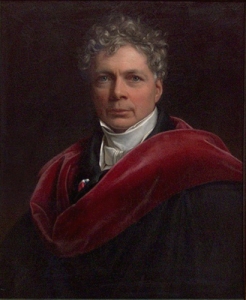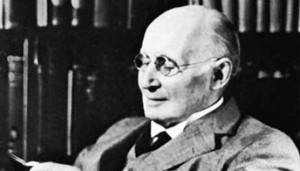I’ve just finished Matthew Stewart’s popular book The Courtier and the Heretic: Leibniz, Spinoza, and the Fate of God in the Modern World (2006). I was hoping to fill out my own understanding of the historical context surrounding these two thinkers. I was not disappointed on this front. Stewart combed the archives and stitched together an entertaining story about the important influence (even if negative) that Spinoza had on Leibniz. After Leibniz had caught wind of Spinoza’s heretical writings through a mutual friend, he initiated a short correspondence before eventually meeting with Spinoza at the latter’s apartment in The Hague in November of 1676.
Stewart’s presentation of the ideas, as well as the personal character, of these two world-historical thinkers is tilted rather sharply in Spinoza’s favor. Stewart is certainly entitled to his perspective, but I was put off by his hatchet job on Leibniz. Spinoza, clearly his hero, is made to seem like an anti-mystical modern liberal materialist, while Leibniz is painted as a greedy, socially needy medieval throwback and a pathological liar whose best ideas were cribbed from Spinoza. Leibniz’s character flaws, as well as his philosophy, are psychoanalytically reduced by Stewart to the loss of his doting father at the tender age of 6.
Leibniz was well-traveled and well-connected man whose collected works and correspondence with other learned members of the European upper classes totals more than 150,000 pages. As a result, historians know far more about his biography than Spinoza’s, who was forced into seclusion after being excommunicated from the Sephardic Jewish community in Amsterdam when he was 24. Leibniz’s flaws, as well as his brilliance, are far more on display than Spinoza’s, whose life remains shrouded in mystery. This makes it easy for Stewart to elevate Spinoza to the stuff of legend, the exemplar of all virtue and modesty. Stewart claims him as the heroic forerunner of everything he finds great about modernity: the religiously tolerant and democratic state, the ethos of self-interest, the mechanistic understanding of nature, etc.
Stewart laments the “anti-modern” influence of Leibniz in the centuries following his death, suggesting that “the reactive form of modernity that began with [him] has in fact become the dominant form of modern philosophy” (310). He goes on:
“Anxious over the apparent purposelessness of the world revealed by modern science; bitter about the threatened demotion of humankind from its special place in nature; alienated from a society that seems to recognize no transcendent goals; and unwilling to assume personal responsibility for happiness–a needy humankind has reinvented the Leibnizian philosophy with abandon over the past three centuries” (311).
Stewart lists Kant, Hegel, Bergson, and Heidegger as each expressing what amounts to the same sort of reactionary philosophy that Leibniz first articulated in response to his encounter with Spinoza’s system. All these anti-modern thinkers, according to Stewart, failed to face the darker mundane truths about human and cosmic nature revealed by the scientific method and by the bloody course of political history. Contra Leibniz, it would seem that we do not live in the best of all possible worlds.
There is certainly something profound in both Spinoza’s pantheism and Leibniz’s monadology. My own philosophical heroes, Schelling and Whitehead, learned a great deal from each of them. Schelling, who argued his entire life on behalf of freedom (for humanity, for God, and for nature), nonethteless lavishes great praise upon Spinoza (this despite the latter’s thoroughgoing deterministic world-picture). In his 1833 lectures published as On the History of Modern Philosophy, Schelling writes:
“It is unquestionably the peacefulness and calm of the Spinozist system which particularly produces the idea of its depth, and which, with hidden but irresistible charm, has attracted so many minds. The Spinozist system will also always remain in a certain sense a model. A system of freedom–but with just as great contours, with the same simplicity, as a perfect counter-image of the Spinozist system–this would really be the highest system. This is why Spinozism, despite the many attacks on it, and the many supposed refutations, has never really become something truly past, never been really overcome up to now, and no one can hope to progress to the true and the complete in philosophy who has not at least once in his life lost himself in the abyss of Spinozism” (66).
Schelling was stimulated to move beyond his early allegiance to Fichte’s subjective idealism by Spinoza. But the latter’s system was no resting place for Schelling, it was rather a springboard towards deeper speculations on the relationship between the creative life of God and on God’s participation in the becoming of nature. For Spinoza, God was inseparable from and so identical with nature. Though infinite, Spinoza’s God was also an immovable and so dead substance, incapable, says Schelling, of going out of itself in order to create. And as far as Schelling was concerned, despite the genius of his system, Spinoza left us with no explanation for how the transition to even just the appearance of finite things could ever have taken place. “We are compelled,” writes Schelling, “to go back into infinity with the explanation of everything.”
As for Leibniz, Schelling agrees with Stewart that his monadology was largely a reaction to Spinoza’s system, “a hypothesis which [Leibniz] thought up, perhaps only to oppose something different for a time to Spinozism, in order, so to speak, to divert the world with it” (78). Schelling goes on to say (in further agreement with Stewart) that “we can primarily regard Leibnizianism only as a stunted Spinozism.” Schelling sees Leibniz not so much as an opponent, but as an interpreter or mediator of Spinoza’s ideas. As Stewart points out, Spinoza’s doctrine of mind-matter parallelism became Leibniz’s doctrine of a pre-established harmony of monads.
Schelling does praise Leibniz for his insight into the stages of nature’s coming to consciousness of itself as spirit. The material world Leibniz called a “sleeping monad-world”; the vitality of plants and animals he referred to as the “dreaming monad”; and the rational soul of intelligent creatures like human beings he referred to as the “waking monad.” Schelling was also inspired to build on Leibniz’s early attempt to delve into the mind of God prior to the creation of the world. In Schelling’s hands, this exercise became the attempt to articulate a sort of “temporal eternity,” a past that was never present, a divine time prior to cosmic time in which God deliberated with Itself. Schelling’s Ages of the World project remained unfinished at his death. It proved too difficult in the end for Schelling to overcome the subject-predict mode of expression while at the same time remaining logically comprehensible at the same time. Though perhaps he came close in his drafts:
“The doctrine that God created the world in time is a pillar of genuine faith. The labor of this present work [Ages of the World] would be adequately rewarded had it only made this thought comprehensible and intelligible. For since there is no time in God itself, how should God create the world in time if there is not a time outside of God? Or how would a determination of this time be possible if there is not already, before creation, a movement outside of God, according to whose repetition time is measured? God, in accordance with His highest Self, is not manifest. God manifests Himself. He is not actual. He becomes actual. It is precisely by this that God may appear as the most supremely free being. Hence, something else emerges between the free eternity and the deed, something that has a root that is independent from eternity, and is something commencing (finite), albeit eternally so. Thereby, there may eternally be something through which God could draw nigh to creatures and communicate Himself to them. Thereby, pure eternity may always remain free with respect to Being. And Being may never appear as an emanation from the eternal capacity-to-be and hence, there may be a distinction between God and his Being. In science, as in life, people everywhere are governed more by words than by clear concepts. Hence, on the one hand, they explain God in an indeterminate fashion as a necessary being and, on the other hand, they get worked up over a nature being ascribed to God. They would thereby like to give the appearance that they are saving God’s freedom. How little they understand, or, moreover, how they understand nothing of this whatsoever, is illuminated by the preceding. For without a nature, the freedom in God could not be separated from the deed, and hence would not be actual freedom. Hence, they quash, as is proper, the system of universal necessity and yet they appear just as eager to quash any succession in God, although, if there is no succession, only a single system remains, namely that everything is simultaneous with and necessary to the divine being. In this way, as one notices that they also do in life, they reject, like the blind, precisely that which they most eagerly seek (without understanding it) and are drawn exactly to that which they really wanted to flee” (80-81).
In the end, Schelling faults Leibniz as much as Spinoza for denying freedom and life to God. Spinoza’s denial was more forthright: God’s only “freedom” is to be what God is. God is substance–simple, unified, unchanging being. End of story. Leibniz attempted to retain God’s freedom, but only through a logical device. He distinguished between the divine will and the divine understanding, whereby the metaphysical necessity of God’s understanding was said not to hamper the moral freedom of God’s will. But Leibniz goes on to claim that God’s goodness could only have led him to chose the best world (even while His understanding forced him to accept only the best of all possible worlds, given the necessities that come along with bringing a finite world into existence). This logical maneuver is but a diplomatic pretense, just “the last resort of rationalism,” according to Schelling (83). Leibniz says God is free, but by arguing that God’s nature is to be good, Leibniz has actually limited God to an essence, that is, God has been equated with necessary existence, which in fact is no existence at all (where to ex-ist means to stand out from oneself, to be free of oneself, but also free to become oneself). Here it is clear how Leibniz, though he consciously strove to escape Spinoza, could in the end only collide with him. As Stewart writes in his endnotes:
“The truth is that, before he knew anything about Spinoza, Leibniz was against Spinoza; and yet, at the same time, he also had a Spinozistic side. The encounter with Spinoza was crucial to his philosophical development because it forced him to confront this division within his own thought. Spinoza presented him with a problem he devoted his philosophical labors to solving, namely, how to suppress the dangerous Spinozist within himself. Absent the dalliance with Spinoza, Leibniz would have remained a conservative thinker; but he would not have been an essentially modern one, and his philosophy would not have originated the reactive form of modernity” (331).
Neither Leibniz nor Spinoza had a way to account for the transition from the infinity of their ideas to the finitude of actual experience. Pure reason alone offers no such path. Leibniz’s many monads and their a priori harmonies; Spinoza’s one Substance with Its attributes and modes: both speculative systems fail the test of experience.
Experimenting on experience is described by Whitehead in the opening pages of Process and Reality as “the true method of discovery.” Like an airplane, the testing of experience:
“starts on the ground of particular observation; it makes a flight in the thin air of imaginative generalization; and it again lands for renewed observation rendered acute by rational interpretation” (5).
Whitehead certainly owed a lot to both Spinoza and Leibniz. His speculative system is a re-assemblage of many of their most insightful concepts. But in re-assembling them, Whitehead also drastically alters their meaning. Leibniz’s monads are turned into process-relational actual occasions; they are, unlike Leibniz’s ultimate entities, almost all window. Spinoza’s simple substance is turned into creative process, neither finally describable as one or as many, but only as a transitional inter-relationship whereby “the many become one and are increased by one”–an eternal repetition of creative differentiation forever and again until the crack of doom. As for God, It becomes a creature of Creativity (but an important one, in that God is Whitehead’s principle of limitation, that Eros for which and by which there is anything definite at all in the first place… Without Desire, nothing could become. Creativity/the Absolute would remain unmanifest, unrevealed, mere potential, unable to ex-ist, to free itself from itself.
So Spinoza and Leibniz (since Kant, usually classified as rationalists) couldn’t account for the transition between the infinite and the finite, and so couldn’t coherently bring God and the World into positive relation… Are Schelling and Whitehead’s answers any better? Is Desire or Divine Eros a convincing reason for this transition? Could there be any other reason? Whatever you may think, Whitehead wagered on this particular solution because he felt it was the most empirically adequate account of the ontological question (“why something rather than nothing?”). Existence has value, else it would not and could not exist. Schelling similarly advocated for a metaphysically empirical account of the ultimate act/fact of creation in his late philosophy of revelation.
Are Schelling and Whitehead “anti-modern” thinkers because of the religious dimension of their thought? I suspect Stewart would think so. They seem to fit right into his schema of “anxious,” “bitter,” “alienated,” and “needy” inheritors of Leibniz who felt the need to protect their human dignity by inventing a divine Father-figure capable of redeeming the chaos and suffering that has thus far dominated human history. I think Stewart rightly warns us to avoid the sort of ontology of consolation he describes. Perhaps Leibniz did fall victim to such a quasi-philosophical strategy in some of his lazier moments. I think Schelling and Whitehead must be understood, not as anti-modern, but as alter-modern. Their philosophies are incarnational, focused more on the Son and the Spirit than the Father, to continue to develop the theological analogy. In this sense they are fully secular, concerned with this world, and not the next.





What do you think?